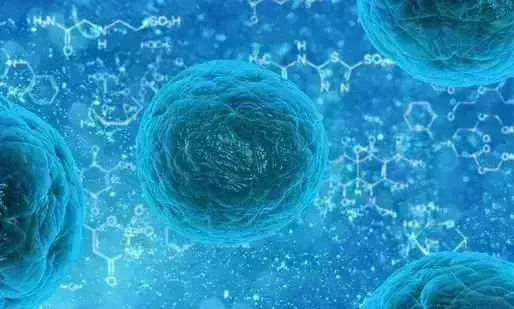Interview: Dr Anupama Yerra says immunity handles HMPV in most kids, advises masks and hygiene for prevention
Hmpv was identified in 2001 through advanced molecular diagnostic tests
By Kaniza Garari
HMPV Virus (Representational Image)
Hyderabad: The Human Metapneumovirus (HMPV) was first detected in 2001 when advanced molecular diagnostic techniques allowed the identification of viruses globally. The recent HMPV outbreak with five cases in India identified on January 6 has created fear in parents for their children's health; two babies, months old, were infected in Karnataka, two children in Tamil Nadu and one in Gujarat.
The emergence of HMPV has raised questions: do we need to fear it like Covid-19? Do children need to be isolated? No, say Hyderabad doctors.
They only need to follow basic preventive methods seen in cases of common cold and cough. Wearing a mask and washing hands regularly are the two most important precautions against HMPV.
Dr Anupama Yerra, consultant paediatrician and paediatric intensivist at Rainbow Hospitals, said there is no need to panic. However, the doctor said diagnosis is important if high-grade fever persists in children.
In a conversation with NewsMeter, Dr Anupama Yerra explained how HMPV affects the body, if it is contagious like Covid-19 and the precautions to be taken to stop its spread.
Here are excerpts from the interview:
NewsMeter: Is HMPV a new virus?
Dr Yerra: No, it is an old virus. In the last 10 years, due to advances in diagnostic testing, the identification of viruses and bacteria has become easy. Hence, advanced molecular testing helps flag the virus for medical treatment purposes only and not to create panic.
HMPV was first detected in 2001 and since then we have been seeing the virus peak in late winter and early spring most years.
NM: How does HMPV affect children?
Dr Yerra: HMPV is asymptomatic in a majority of children as their normal immunity takes care of the virus. In some children, symptoms such as high fever, cough, cold, runny nose and sore throat have been observed.
In severe cases, the symptoms escalate to a continuous high-grade fever, difficulty in breathing or heavy breathing, fatigue and wheezing where medical intervention is required. Children with these symptoms require nebulisation, oxygen support and continuous medical attention.
NM: What is the medical treatment for children who are severely affected?
Dr Yerra: There are no antiviral medicines or antibiotics for HMPV. The treatment is supportive and symptomatic. In mild patients, we ensure there is good hydration which ensures the body heals. In severe cases, nebulisation and oxygen support are provided along with other supportive care to stabilise the patient’s condition.
NM: How long does HMPV last in the human body?
Dr Yerra: HMPV lasts in the human body for 5 to 7 days. For this reason, when children are affected by the virus they must wear a mask, wash their hands regularly with soap and water and not touch too many objects.
NM: Does the virus spread fast like in the case of Covid-19?
Dr Yerra: HMPV does not spread like Covid-19, but it does spread through the air. Hence, infected persons must wear a mask while sneezing and coughing.
NM: Does the virus shed through faeces?
Dr Yerra: No, the viral shedding is not through faeces. It occurs mostly in the upper respiratory system and hence basic care must be taken during cough and cold in virus-affected bodies.
NM: Which type of children need to be given maximum care?
Dr Yerra: Children who are immune compromised and those suffering from diseases need to be given the maximum care. HMPV cases in these children can be managed clinically.
NM: There is a lot of panic among people asking if their children must skip school due to the virus. Will that be necessary?
Dr Yerra: There is no need to panic. Following basic hygiene such as washing hands, avoiding public places, covering mouth and nose while coughing and sneezing and wearing a mask are the best precautions. Most children experience a common cold and cough. HMPV is a virus of the same common cold family.